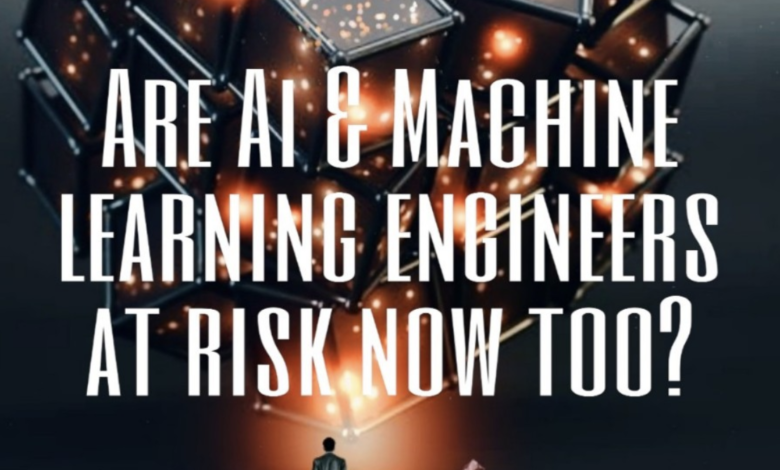
This article was co-written by Niamh Kingsley, assistant manager for data and technology at JDX Consulting and Danilo McGarry, AI and Automation thought leader at Danilo McGarry.
In an increasingly dynamic and demanding market, the pressure to adapt and invest is greater than ever. This is true for both individuals—who must upskill to appeal to recruiters—and companies—who need to deploy new technologies to stay competitive. This is exasperated by disruption from COVID-19 and a paradigmatic shift in the way we approach data.
The solution revolution has empowered less specialised tech players to reinvent their architecture, and consequentially lessens dependence on data scientists and Ai engineers. We are therefore seeing a rapid reduction in inhouse resources, in favour of “out of the box” solutions for automation, artificial intelligence, and more.
So what skills can we expect to increase in demand, and what should CIOs prioritise in the year ahead?
Emerging skills and the future landscape
The solutions shift has had significant consequences for what skills are in demand. It’s true that skill decay happens quickly in technology, as concepts that once seemed elite become broadly accessible, and eventually redundant. Following a revolution in online learning, it’s hardly a surprise that Python is no longer reserved for the data scientists or DevOps engineers of the industry, but is quickly becoming a prerequisite for most technical hires.
Python: the essential skill of today, for everyone
Some may be surprised to learn that Python and artificial intelligence feature in the top trending skills for 2020, not just in the technology industry, but across all industries. “Today and most certainly in the future, knowing Python will be as paramount to every skilled worker’s future as it was to know Excel and how to build macros in the 90’s” – says Danilo McGarry, Ai and Automation industry thought leader & practitioner.
Build more bots
Automation—be it simple and attended, or robotic and unsupervised—is fast becoming a hallmark of an efficient process map, bringing serious ROI and improved data governance.
That being said, in-house automation doesn’t come easy; you’d be wiser to explore a bespoke vendor technology, like trusted ecosystem workflow management tool Firestart. To better connect the sometimes fragmented pieces of automation look to “UiPath for building robots and Ai, and an overarching layer to help you connect human and robot work all in one easy to manage workflow view” – Says Robert Hutter, CEO of FireStart.
“Given today’s constant new entrants into the Automation market, price is being driven down, making Automation and Ai more accessible now to even medium tier companies. This has made building an automation and Ai solution in-house less attractive”, says McGarry. He continues “… off the shelf solutions are evolving, and it is making Ai today more accessible to the everyday business user, where you no longer need such a large data scientist and Ai engineering cost base in order to build good machine learning models, for instance. This increasingly means that you don’t need to be a Ph.D. to build cognitive automations”.
Self-service business intelligence
With an improved workflow, ecosystem comes a need for effective reporting, and the rise of accessible business intelligence has necessitated a surge in familiarity with tools such as Alteryx, Tableau, and Qlik. “Deploying automation can, and will, transform your data processes, but that return can be significantly enhanced by understanding and displaying that data in an intelligent way,” says Niamh Kingsley, data and technology consultant at JDX Consulting.
Recommendations for CIOs
In driving strategic change and resilience, CIOs—and decision-makers more generally—should look to encourage a shift from developer skills to data access and analytical skills, as well as investing in transformative and scalable solutions.
Lose legacy processes, make businesses more secure
Whilst technology companies are expected to be agile and adaptive, the sector continues to be plagued with decades-old legacy infrastructure. The move to remote working has compounded issues by increasing exposure to cyber-attacks, and increasing the pressure to declutter services by replacing outdated systems with more resilient ones.
To protect customer data and proprietary information (amongst other things) companies must reduce the volume of systems they rely on, and improve the flow of processes; initiating discussions with vendors to understand new functionality and streamlining is, therefore, an important step.
Outlook for the year
In 2021, and the rest of the decade, embracing new skills—as an individual and as a company—is more important than ever. Adapting processes in order to resist further disruption from COVID-19, and to stay relevant, is absolutely mission-critical.
Let’s be clear: we aren’t going to see robots replace experts any time soon, but to successfully play in the landscape of the future, individuals and firms must amend their priorities.
The workforce of tomorrow is an ex-business subject matter expert (SME) that today knows how to use such off the shelf solutions to overlay their business as usual (BAU) with intelligent efficiency solutions using RPA, Bi, and Ai from existing and well-established technology providers.
Embracing this will help to drastically reduce the cost of a company’s digital transformation journey, whilst also allowing time to scale with increased ROI.




